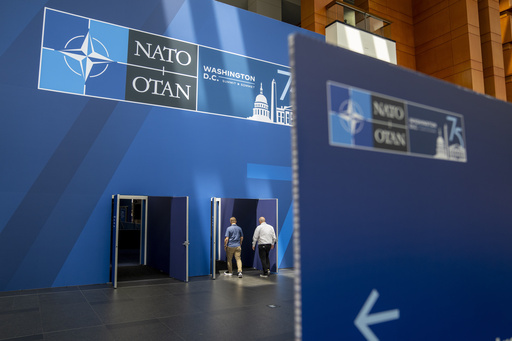In the third year of the conflict in Ukraine, NATO is preparing to enhance relationships with its four partners in the Indo-Pacific region. These countries are not formal members of the alliance but are gaining significance amidst Russia and China’s strengthening ties against the United States, with differing stances from the two Koreas in the European conflict.
Leaders from New Zealand, Japan, and South Korea will once again join the NATO summit in Washington, D.C. Australia will be represented by its deputy prime minister. China is closely monitoring the summit, expressing concerns about NATO’s expanding focus beyond Europe and the Western Hemisphere.
Secretary of State Antony Blinken highlighted the evolving perspective of partners in Asia and Europe, recognizing challenges across continents as relevant. He emphasized efforts to dismantle barriers between European alliances, Asian coalitions, and other global partners to establish a new collaborative landscape.
As shared security concerns intensify amidst U.S.-China competition, countries are strengthening their bonds. Washington aims to counter China’s aspirations to challenge the U.S.-led global order. On the other hand, Beijing denounced rumors of a forthcoming document between NATO and its Indo-Pacific partners outlining joint responses to cyber threats and disinformation.
The conflict in Ukraine has underscored the need for closer cooperation between the U.S., Europe, and their Asian allies. South Korea and Japan are supporting Ukraine with military aid, while the U.S. alleges China is equipping Russia with technology for weapon production against Ukraine.
NATO’s collaboration with Indo-Pacific partners allows coordinated efforts on mutual issues. This partnership doesn’t make NATO a direct player in the Indo-Pacific’s affairs but facilitates information sharing and alignment on actions such as sanctions. The upcoming summit is seen as an opportunity for the U.S. and its allies to counter the influence of China, Russia, North Korea, and Iran.
Amidst these developments, Beijing is anxious about NATO’s increased attention in the Indo-Pacific region. Chinese officials urge NATO to view China as a positive contributor to global peace and stability and not as a strategic adversary. They express hope for a swift resolution to the war in Ukraine and emphasize the importance of global and regional cooperation.
Tensions between NATO and China escalated in 2019, culminating in NATO labeling China as a “systemic challenge” due to military cooperation with Russia. Beijing is wary of the U.S. forming a NATO-like alliance in the Indo-Pacific, suggesting it aims to uphold U.S. hegemony.
The U.S. emphasized its collaboration with like-minded countries in the Indo-Pacific, aiming for a free and open region. The geopolitical landscape is evolving, with alliances forming and reshaping as global powers navigate shifting dynamics and security challenges.
